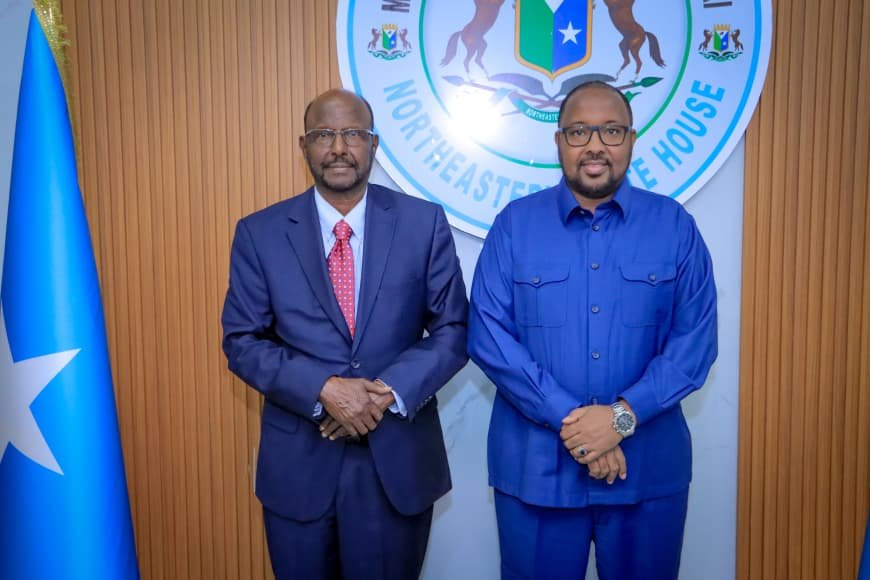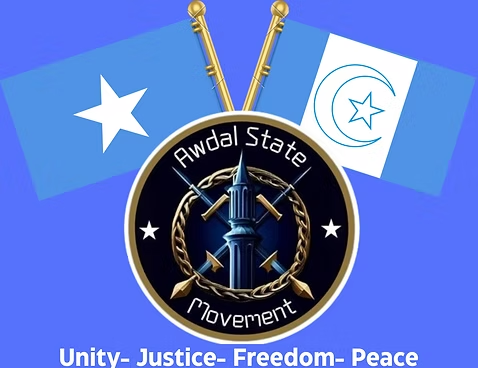The meeting that took place in early December 2025 between the Leader of the Awdal State Movement, Hon. Dr. Ali Ibrahim Bahar, and the President of Waqooyi Bari, Hon. Abdulkadir Ahmed Aw Ali, was far more than a routine diplomatic engagement. It served as a clear and unequivocal rebuke of a political system that, for over three decades, has sought to enforce upon northern Somalia a tribal, exclusionary, and fundamentally discriminatory order.

By gathering at this moment — December 2025, a time when the political map of the north is shifting — both leaders have sent an unmistakable message: Awdal is, and has always been, unionist to its core, while the political culture of Waqooyi Galbeed remains anchored in a clan-based separatist ideology fundamentally incompatible with the inclusive national vision historically defended by Awdal.
Awdal’s unionism is not rhetorical; it is intrinsic. Since independence, Awdal’s intellectuals, traditional leaders, diaspora, elders, and youth have consistently defended Somali unity. They have served the Somali state, upheld national institutions, and refused to transform clan identity into a political weapon. Awdal has never sought to dominate, exclude or erase any Somali community. It has never embraced secessionist warfare, nor rewritten history to glorify itself. Its political culture has always been rooted in nationhood, coexistence, and respect for the broader Somali people.
Waqooyi Galbeed, on the other hand, built its political project on the ideological foundations of the SNM, a movement that openly pursued separation and clan dominance rather than a federal Somali partnership. This ideology evolved into a political system where citizenship itself is stratified: access to institutions, leadership, and opportunity depends not on merit or national identity but on clan affiliation. Even those from outside the dominant group who collaborate with this system are never treated as full citizens — they are tolerated, instrumentalized, but never embraced. This is not mere inequality; it is a tribalist separatist structure, reproducing patterns of exclusion that echo the discriminatory hierarchies known in other parts of the world’s history.
The system reinforces itself through a sophisticated apparatus of propaganda — especially in the schools. Children are taught a carefully rewritten history where the SNM is elevated into the sole heroic force of the north, while its attacks on unionist regions, including civilians, are erased from the narrative. The historic contributions of Awdal, including its central role in the USP, its long unionist identity, and its sacrifices for the Somali nation, are intentionally removed. This is not educational bias — it is a deliberate political strategy to erase Awdal, justified only by the needs of a separatist ideology seeking total control over the northern narrative.
But on 25 August 2023, at Wojacadee (Gooja’adde), the illusion cracked. Waqooyi Bari (then Khaatumo) expelled the separatist militias of Waqooyi Galbeed, dismantling both their military presence and the myth of their ideological supremacy. A people that refused to bow to a clan-based project reclaimed its land and reaffirmed its allegiance to the Somali union. That day was not merely a battlefield victory; it was the collapse of a narrative that assumed it could dominate indefinitely through propaganda, force, and historical manipulation.
Now, following the December 2025 leadership meeting, it is Awdal’s turn to rise.
Awdal rejects any political order that excludes it.
Awdal rejects a system that erases its history.
Awdal rejects a separatist project built on clan hierarchy and ideological distortion.
Awdal has never belonged to the separatist vision of Waqooyi Galbeed — and it never will.
Awdal stands not only as a region, but as the unionist conscience of the north,
and this December 2025 meeting confirms that conscience is awakening with renewed strength.
Awdal is returning to its rightful place — not through permission, but through legitimacy, history, and the unshakeable will of its people.
By Awdal State Movement – Official Statement
